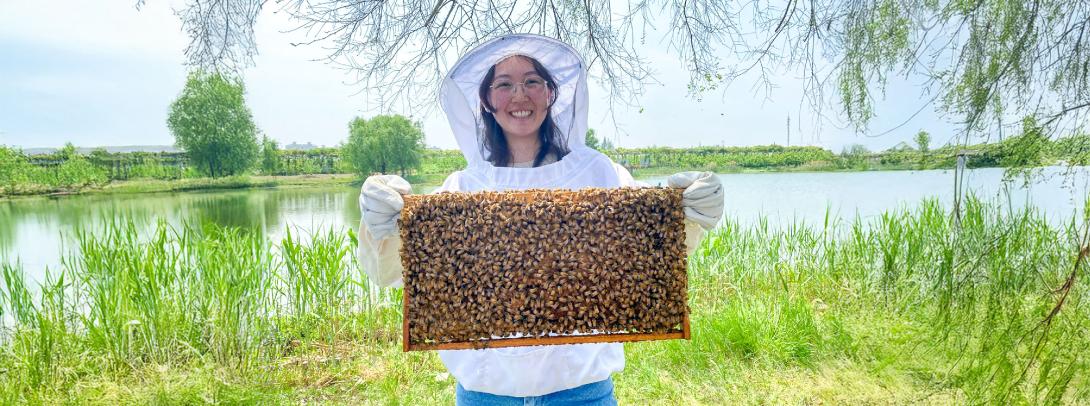To ensure a thriving planet in the future, we have to act together and we have to act now. That was the message shared through a wide range of events organized at NYU Shanghai to celebrate Earth Month. With global warming and climate change a growing concern around the world, the events brought awareness to the environmental threats to our planet and encouraged small (and big) actions to promote a sustainable planet.
“I do think it speaks to an increasing urgency of environmental issues,” said Clinical Assistant Professor of History Erica Mukherjee, who joined several of the events. “There might be more of an uptick in interest, simply because there's more typhoons and there's more extreme heat events, and they're happening all around the globe.”
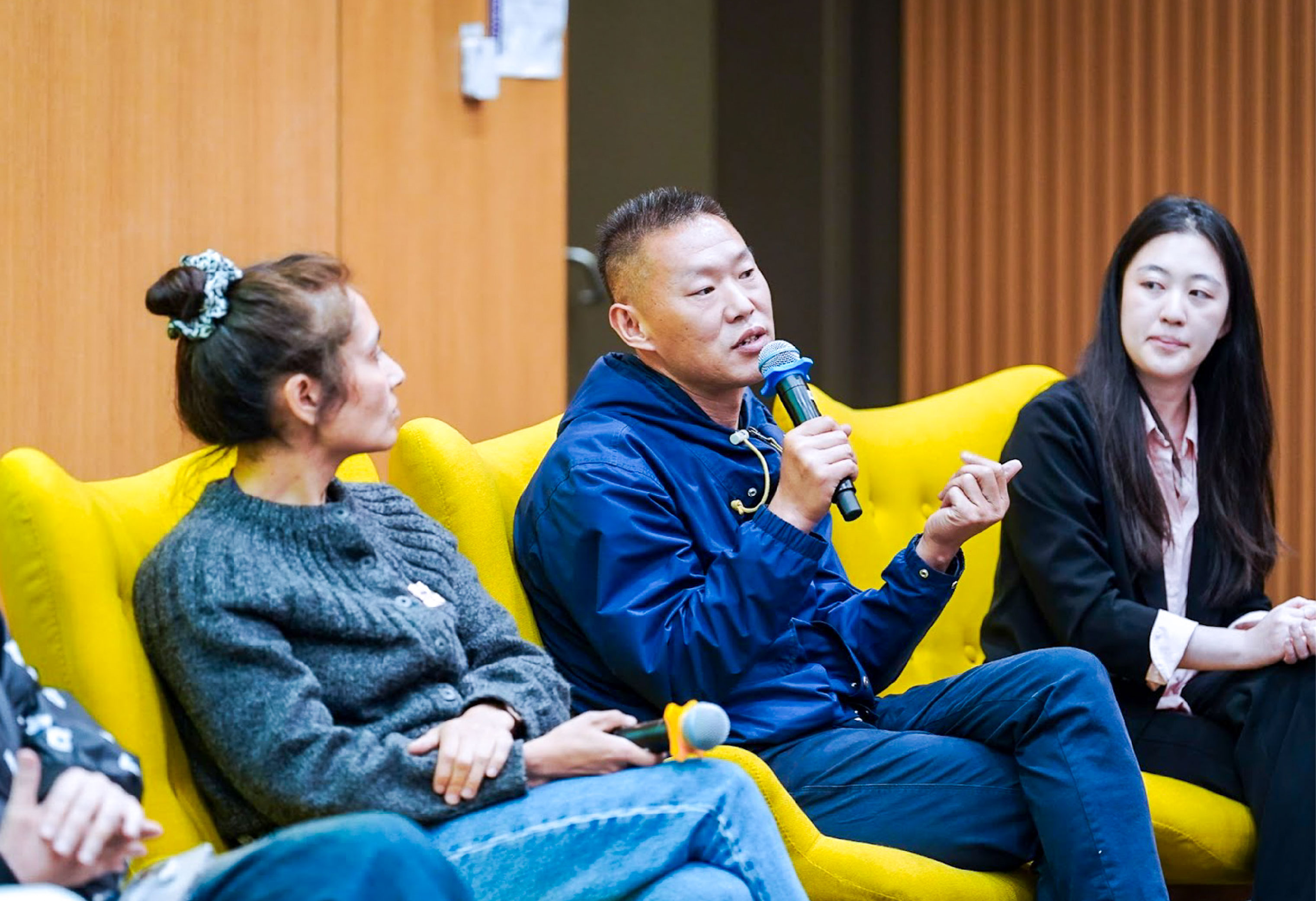
Many of the events organized were part of Green Week, a weeklong series of events related to the environment. The Environmental Justice Colloquium, organized by GPS Fellow Dr. Edad Mercier, brought two influential documentary films by Wang Jiuliang to campus.
After a screening of his 2016 film Plastic China, Wang and the film’s producer Ruby Chen engaged in a roundtable discussion with Associate Arts Professor of Interactive Media Arts (IMA) Marcela Godoy, Clinical Assistant Professor of History Erica Mukherjee, and Assistant Professor of Environmental Studies Yifei Li.
“What I want to put out there is this: let’s make the most of what we already have,” Wang said. “If we treat the things around us with care and appreciation, that’s already a meaningful step toward protecting the planet.”
A screening of another of Wang’s films, Beijing Besieged by Waste (2011), prefaced a talk by ECNU Professor Yue Che on socio-ecological practices and the development of Shanghai’s waste management. Dr. Yue introduced the history of Shanghai’s waste management and argued that the government’s top down system of waste sorting, with the support of neighborhood community organizations and nonprofit organizations, has been a key to its success.
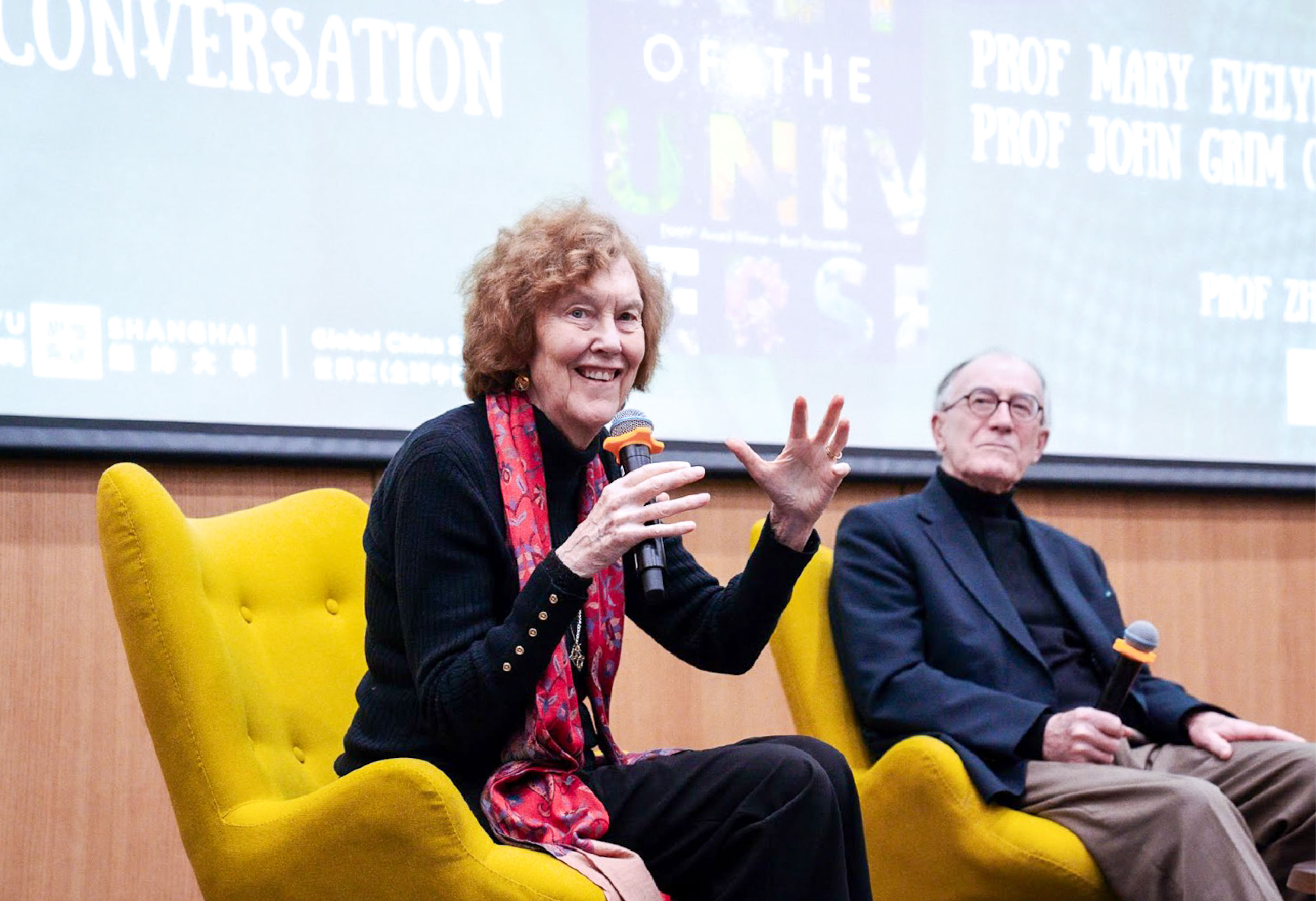
Meanwhile, the Inclusive Ecology Collective’s Think-and-Act Series invited the community to reflect deeply on their relationship with the planet—and with one another. Assistant Professor of Global China Studies Zhang Liangliang, who organized the series, shared that her goal was to offer new ways to situate our human story in a planetary context and nurture a palpable sense of hope.
“I want to inspire new ways of relating to the natural world through the deep, unfolding story of the universe,” she said. “To cultivate an appreciation of our interconnectedness with the greater planetary community—human and more-than-human alike.”
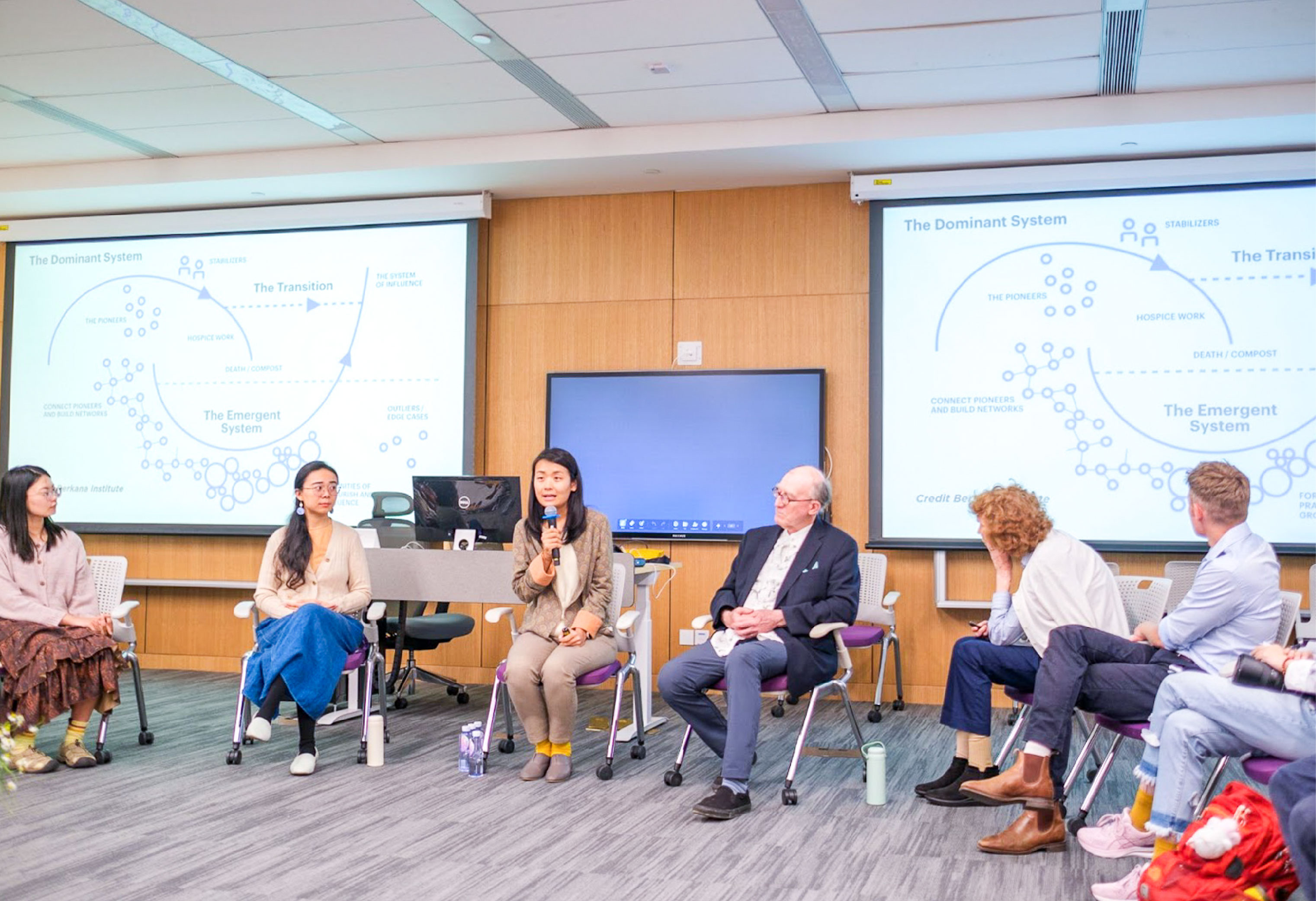
A film screening of the Emmy Award-winning documentary Journey of the Universe was followed by an engaging and thought-provoking conversation with filmmakers Mary Evelyn Tucker and John Grim, co-directors of the Yale Forum on Religion and Ecology.
“We want to give an intergenerational handshake to all our students and young people everywhere searching for their path forward,” Tucker said. “Our hope is that the younger generation feels a deep sense of belonging to this planetary community.”
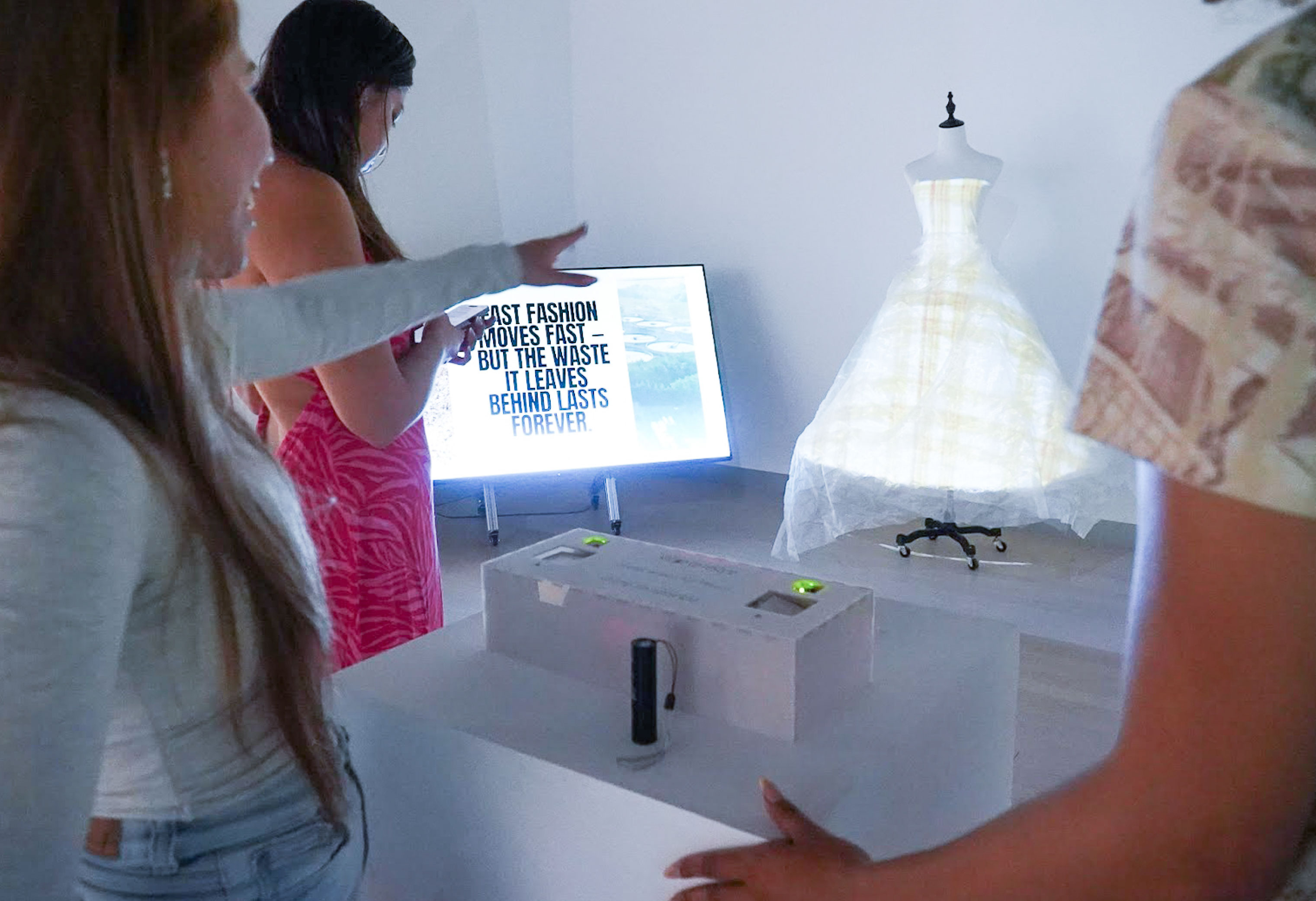
In another event in the series, WildBound Founder and Chief Explorer Yao Songqiao offered a compelling vision of hope rooted in intergenerational and intercultural collaboration and shared powerful stories from her work as a global regeneration leader—facilitating expeditions in the Arctic and Antarctica and retraining architects and placemakers in regenerative design across Southeast Asia.
“Much of regeneration is inner work — a shift in mindset from designing end products to enabling living systems,” she explained. “It calls for mindfulness and empathy to foster deeper connections with ourselves, each other, and the world around us.”
Reflecting on the series, Zhang said she hopes attendees were encouraged to slow down and make conscious choices in daily life.
“Find contentment through connection, not consumption,” she urged. “Before making a purchase, pause and ask yourself: do I truly need this?”
Reducing consumption was the theme of student-made art work displayed on campus during Earth Month. EverWear Garment, an art installation at the Interactive Media Arts Gallery, addressed the topic of consumption and encouraged minimalist fashion. Tiri Nhawu ’28 designed a garment that transforms and adapts according to the wearer’s needs, offering variety and self-expression without excess.
“I imagined a garment that could adapt like nature does—changing with its surroundings, minimizing waste, and making expression sustainable,” she explained.
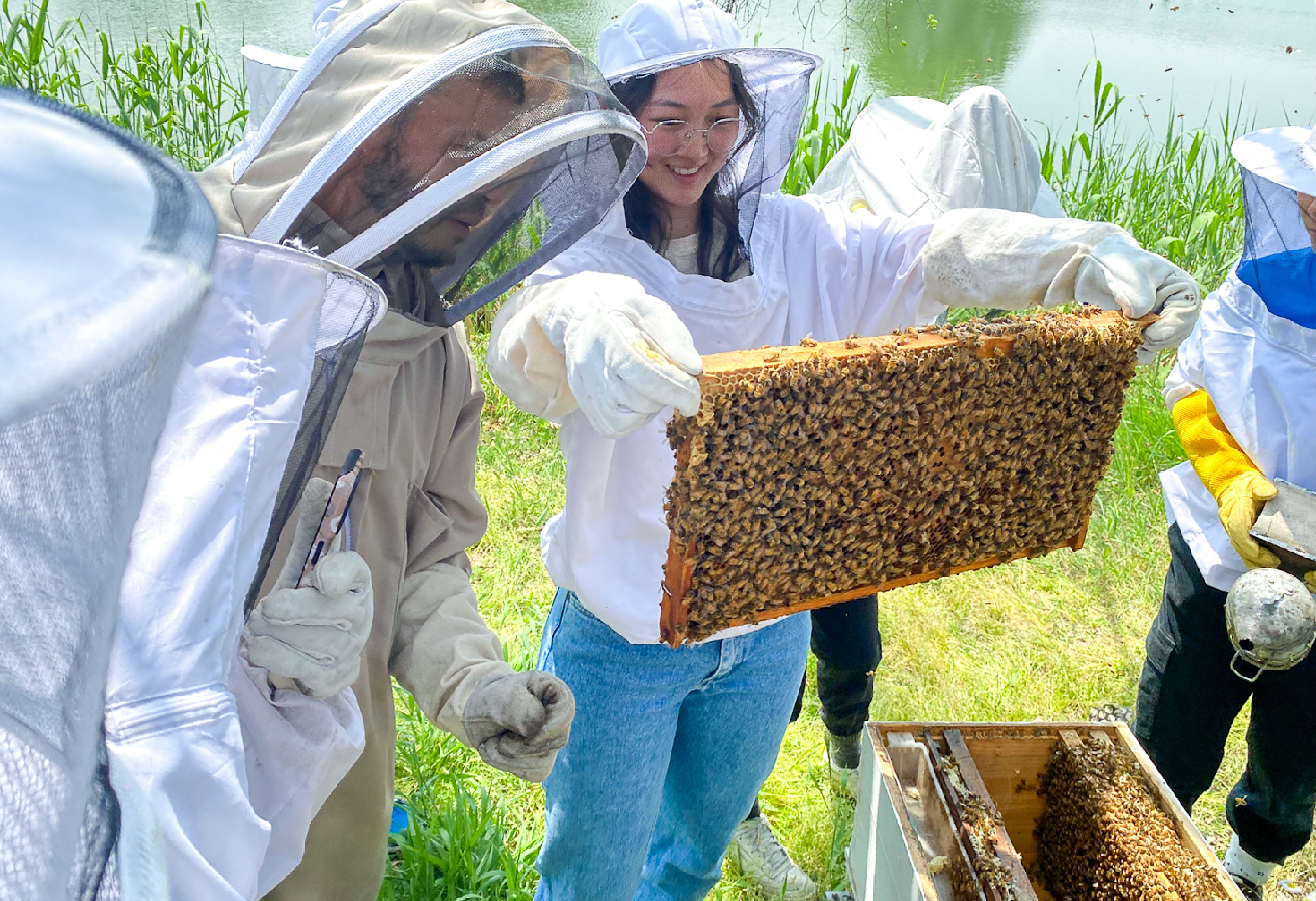
Getting in touch with the natural world was also a theme of the activities. At an intensive four-session workshop on ethical urban beekeeping organized by Community Engaged Learning and Interactive Media Arts, NYU Shanghai student, staff, and faculty visited an urban apiary to learn how honey bees have an impact on the environment.
“Honey bees are the unsung heroes of the ecosystem: what happens to them happens to us,” beekeeper and Urban Bees Shanghai founder Marco Sentinelli told them. “Their constant decline mirrors our planet’s fragility and learning about how to protect them is the first step to a wider collective action for a healthier world.”
At the New York campus, acclaimed environmentalist, author and journalist Bill McKibben was invited to give the inaugural NYU Distinguished Lecture on US-China Cooperation on Climate and Health. The talk, held on Earth Day, was organized by NYU School of Public Health and NYU Shanghai and will held at NYU Shanghai next spring.
“The path forward depends on China and the United States working side by side to confront the major challenges of our time,” said Assistant Professor of Environmental Studies Yifei Li, one of the committee members for next year’s talk. “Whether it’s the climate crisis or global health, the stakes couldn’t be higher. This NYU lecture series creates a critical space for building the trust, understanding, and collaboration that our world so urgently needs.”
A number of hands-on activities introduced a more tactile approach to sustainability, including two workshops in soap making and planting organized by the Deans’ Service Corps and a vegan bake sale.
The week concludes with a Green Fair on the Quad organized by Student Government’s Environmental Sustainability Committee and Green Shanghai, including more than twenty vendors selling snacks and environmentally-friendly products, live music, and a second-hand market.
Green Shanghai President Elaine He ’25 said the range of activities organized throughout the week reflect what can be accomplished when people come together. “I think it shows that sustainability isn’t something isolated to just one group—it’s something that connects to all parts of our lives and learning,” she said. “Faculty and students alike are seeing the urgency of these issues and finding ways to integrate environmental thinking into their teaching, research, and daily actions. My hope is that NYU Shanghai becomes a place where sustainability is deeply included in our culture—not just a one-week celebration, but a long-term commitment.”


